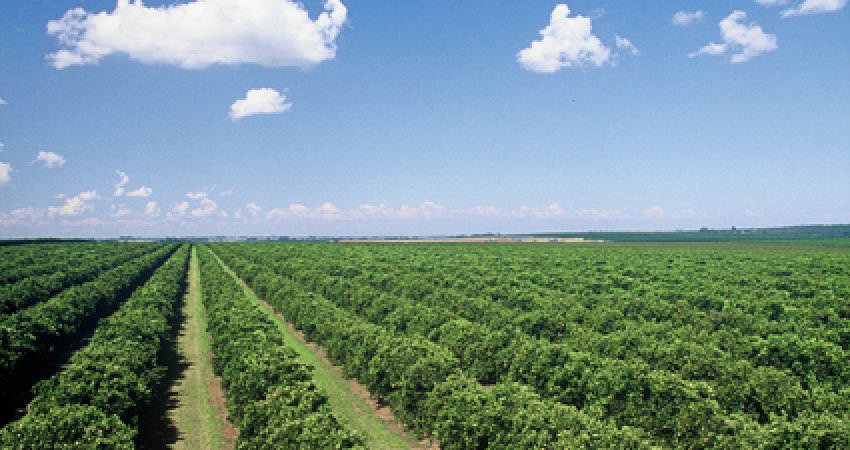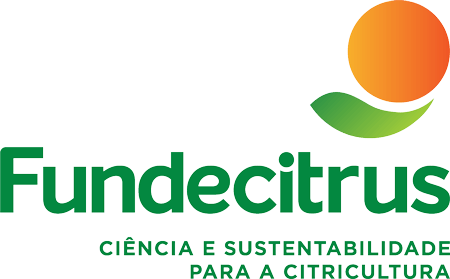Research projects in Brazilian citrus crops enabled water savings that are sufficient to supply a city with more than 500,000 inhabitants for one year

A project by Fundecitrus - Fund for Citrus Protection in partnership with the Agronomic Institute (IAC), which is connected to the State government of São Paulo, calculated that the studies and investments in application technologies made in the last 20 years resulted in savings in water consumption in the São Paulo and West-Southwest Minas Gerais citrus belt that would be sufficient to supply water to a city with more than 500,000 inhabitants during 365 days, or to 200 million people during one day.
The Brazilian citrus belt is the main producing region of oranges and orange juice in the world. Application technology comprises the use of technical and scientific knowledge to efficiently apply products on their targets (pests or diseases) at appropriate amounts and with the lowest possible impact to the environment and to the application provider.
The partnership between Fundecitrus and the IAC to study the mixture volumes used for phytosanitary treatments in citrus farming started in 2000, with the leprosis mite.
At the time, the quality standard was the mixture dripping. The technology which was employed demanded an average consumption of 10,000 to 12,000 liters of water per hectare for a production of roughly 200 plants per hectare, a scenario that the partnership aimed at changing.
Approximately 20 experimental fields, focused on the use of turbo sprayers, were assembled and assessed together with citrus growers and companies in order to enhance features like air curtain, number of nozzles, droplet size, and equipment displacement speed.
Several measuring methods were analyzed, and a decision was made to consider plants as cubes in order to facilitate the calculation, and consequently, the adoption of the technology by farmers (“milliliters of water per cubic meter of canopy” replacing “liters of water per plant or hectare”). Today, this measurement is the standard of the industry. Over the years, the mixture volume to control leprosis mite has been reduced to 2,000 to 4,000 L/hectare. The volume of 100 mL/m³ has been established to control internal targets, such as the leprosis mite, and 40 mL/m³ to control external targets, such as psyllids. These volumes were duly tested and confirmed.
According to the researcher Hamilton Ramos, Coordinator of the Reference Unit on Technology and Safety in the Application of Agrochemicals of the IAC, the technology which was established was fundamental to keep the farming of citrus crops viable in Brazil. “If the average consumption required in the groves had been kept at the levels of 2000, citrus farming would have become economically unfeasible, as today it would be unthinkable to consider 600 to 800 plants per hectare and approximately 20 sprayings per year, based on the dripping technique as the quality standard”, he stated. “Moreover, there are environmental aspects involved: the average reduction of just 5,000 liters of water per hectare promoted by the technology developed by the partnership between Fundecitrus and the IAC accounts for a volume spared that suffices to supply water to 200 million people for one day, 6.7 million for one month, or more than 500,000 people for one year”, he highlighted.
In the last few years, studies on application technologies performed by Fundecitrus and supported by the IAC have demonstrated that it is possible to reduce the volume of water by 70% during operations to control psyllids and citrus canker, 60% in the case of blossom blight, from 40% to 50% in the case of black spot, and 30% in the case of leprosis, when compared to levels normally used by producers.
The Fundecitrus Agronomist Marcelo Scapin, expert in application technologies, highlights that this adjustment supports a higher level of sustainability in citrus crops. “The reduced amounts of water and products, based on their rational use, are in line with an increasingly sustainable food production system, which is concerned with the environment, promoting its preservation, as well as the social and economic wealth generated by the sector”, he explains.
On the week of the World Water Day, Fundecitrus leveraged its platform Sustainable Citriculture to launch a documentary series called “Water”, which features interviews with researchers and citrus growers to address the rational use of water and the environmental conservation promoted by the Brazilian citrus sector. The series covers new technologies which enable savings of water consumption as well as initiatives to recover riparian areas and protect biodiversity.
New episodes in Portuguese and English are made available every Wednesday on social networks and on the Fundecitrus channel on Youtube. Watch now: https://www.youtube.com/watch?v=mc4sX96BtOY&list=PLNGvlZWMMz_sCRxCR-pxV5mlLs-QrmCJ3.
Leia em português:
